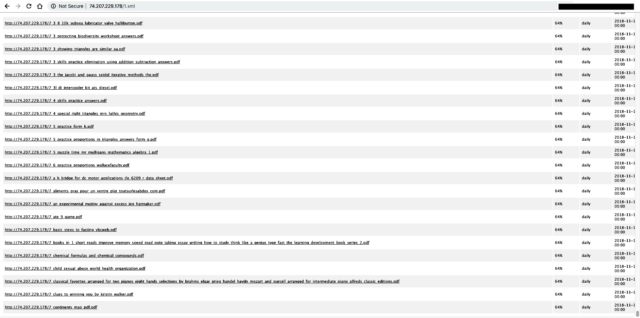
When a network intel provider’s domain serves fraudulent content, something is wrong

ThousandEyes, a San Francisco-based network intelligence service, helps customers monitor all kinds of mission-critical things, from border gateway protocol leaks to DNS performance. But over the past week or so, the company has struggled with its own networking blunder that allowed scammers to host hundreds of thousands of fraudulent documents on its very own domain.
As the screenshot above shows, vps4-atl1.ag0.thousandeyes.com was hosting PDFs promoting screenplays, books, and how-to guides. By being hosted on a legitimate website operated by a security company, the content was designed to manipulate Google search results in a way that tricked people into clicking on questionable links. Google searches suggest that the documents were hosted on the subdomain since the beginning of the month, before being removed on Tuesday, as this story was being reported.
To park their content, the scammers took advantage of a lapse in the management of the ThousandEyes.com domain. An entry in the domain’s authoritative name servers pointed to the IP address 74.207.229.178. The IP address belongs to Web host Linode. ThousandEyes used the IP in the past, but at some point it stopped doing so. ThousandEyes admins, however, failed to remove the DNS entry from the name servers. The scammers then noticed the lapse, obtained the same IP address from Linode, and used it to host the scammy documents.
In an emailed statement, ThousandEyes spokesman Ben Stricker wrote:
This was a stale DNS record from decommissioned infrastructure that was pointing to an IP address that we no longer use. The hosting provider re-used that IP address, and someone hosted those PDFs using that IP address. Since the stale DNS record was still pointing at that IP address, it appeared to be part of our domain. There was no compromise of our hosting, DNS, website or systems and no exposure of any of our or customer data. As soon as we saw the problem, our operations team was able to fix it and reported the issue to the hosting provider.
In a later email, ThousandEyes spokeswoman Susan O’Brien wrote: “Just to be clear, the abandoned DNS record was pointing to the IP address where the content was hosted. ThousandEyes was not hosting the content on any of its infrastructure.”
This is technically true. But it’s also true that ThousandEyes’ infrastructure was linked to a fraudulent IP address and that the lapse went undetected for about two weeks. That’s a serious error for a service that’s supposed to help other companies detect these same sorts of problems.
Until late Wednesday night or early Thursday morning, the scammer’s server remained up and running on Linode. XML site maps such as this one showed just how many documents the scammers had. Here’s what it looked like on Wednesday afternoon:
But again, once ThousandEyes admins removed the DNS entry from name servers on Tuesday, the content was no longer tied to the company’s domain.
The episode shows just how easy it is for just about anyone to make serious mistakes. While PDFs designed to manipulate search results are relatively benign, the people exploiting ThousandEyes’ security lapse could have used it to host much more nefarious things, such as links to malicious downloads. ThousandEyes’ role as a trusted gatekeeper monitoring companies’ most security-sensitive network activities would have provided the perfect cover.






